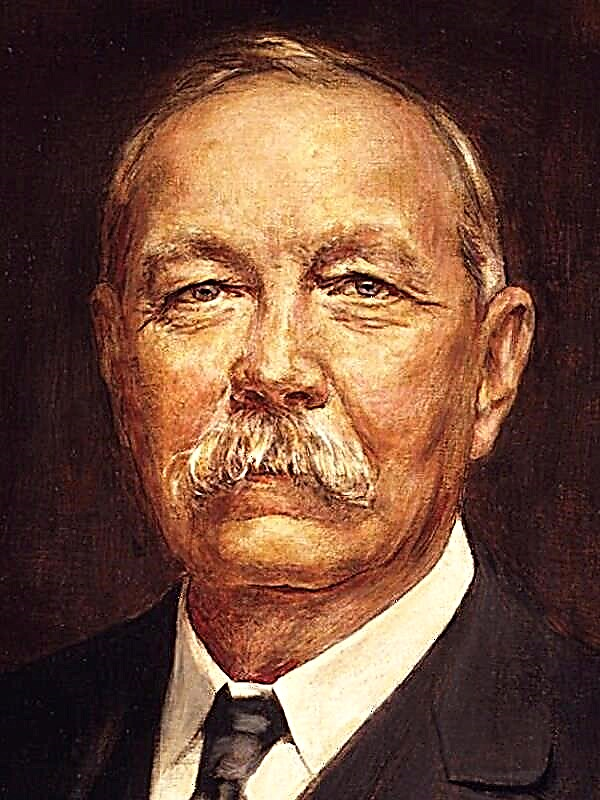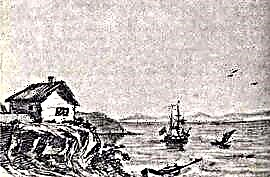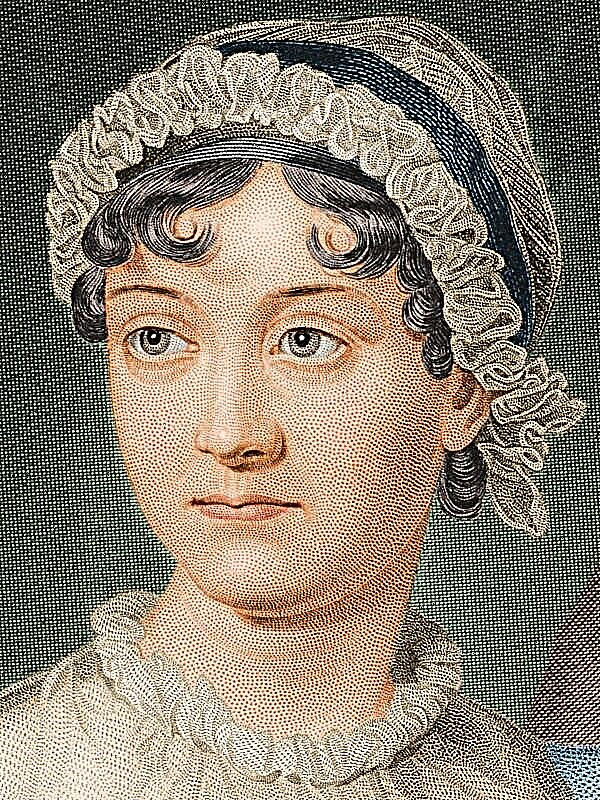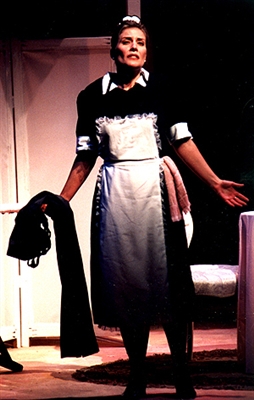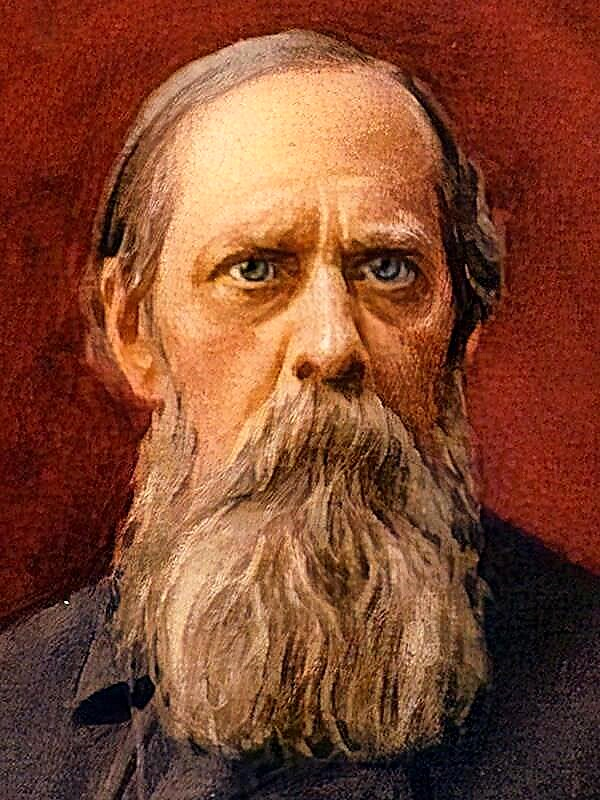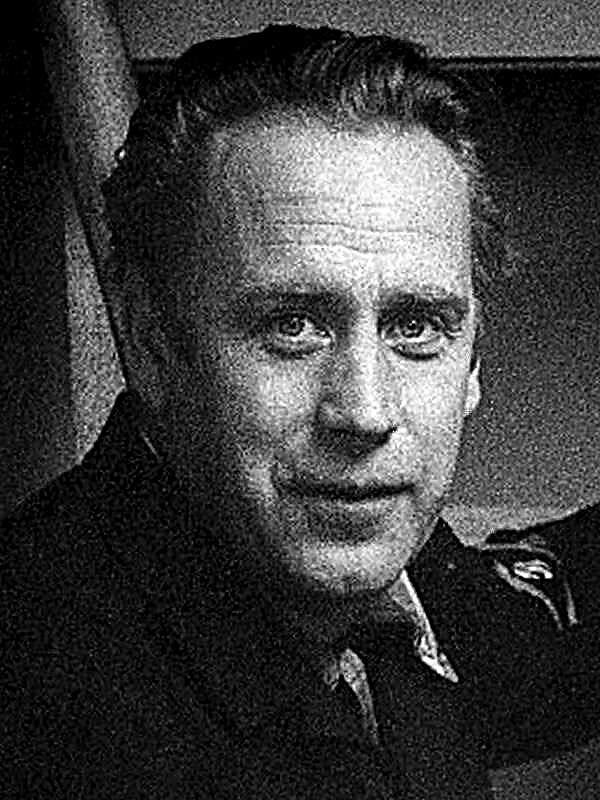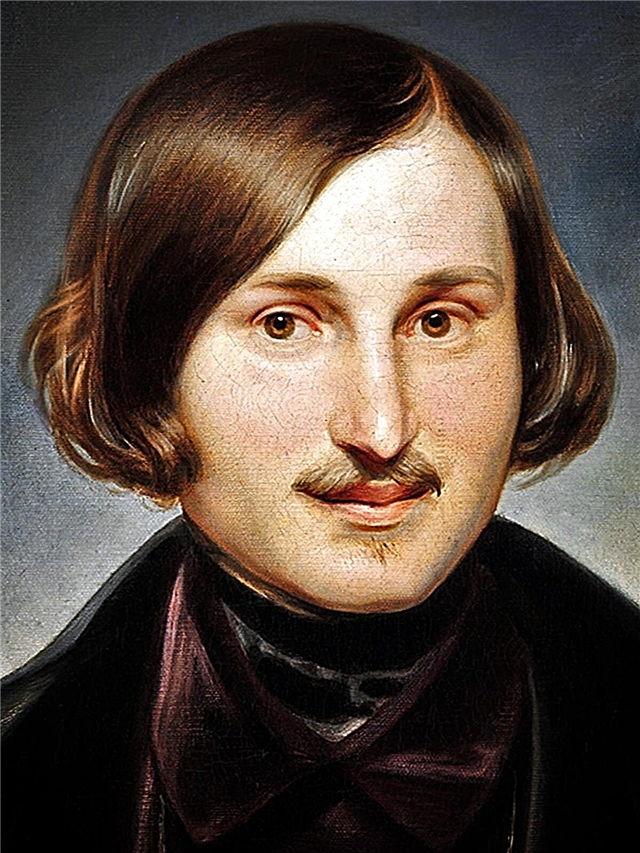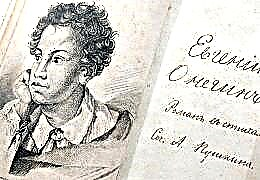: About Writing and Psychology of Creativity
Precious dust
Scavenger Jean Chamet cleans up craft workshops in the Paris suburbs.
Serving as a soldier during the Mexican War, Chamet fell ill with a fever, and he was sent home. The regimental commander ordered Chamet to take his eight-year-old daughter Susanne to France. All the way, Chamet took care of the girl, and Susanna eagerly listened to his stories about the golden rose, bringing happiness.
One day, Shamet meets a young woman in whom she recognizes Susanna. Crying, she tells Shamet that her beloved cheated on her, and now she has no home. Suzanne settles at Shamet. Five days later, she reconciles with her lover and leaves.
After parting with Suzanne, Shamet ceases to throw rubbish from jewelry workshops, in which there is always a little gold dust. He builds a small fan and re-jewels the dust. Shamet gives the gold mined in many days to a jeweler for making a golden rose.
Rosa is ready, but Chamet discovers that Susanna has left for America, and her trace has been lost. He quits work and gets sick. No one cares for him. Only the jeweler who made the rose visits him.
Soon, Chamet is dying. The jeweler sells a rose to an elderly writer and tells him the story of Chamet. Rosa appears to the writer as a prototype of creative activity in which, "like from these precious specks of dust, a living stream of literature is born."
Inscription on the boulder
Paustovsky lives in a small house on the Riga seaside. Nearby lies a large granite boulder with the inscription "In memory of all who died and will die at sea." Paustovsky considers this inscription a good epigraph to a book on literary work.
Writing is a calling. The writer seeks to convey to people thoughts and feelings that excite him. At the behest of the call of his time and people, the writer can become a hero, endure difficult trials.
An example of this is the fate of the Dutch writer Eduard Dekker, known under the pseudonym "Multatuli" (lat. "Long-suffering"). Serving as a government official on the island of Java, he defended the Javanese and sided with them when they rebelled. Multatuli died without waiting for justice.
The artist Vincent Van Gogh was just as selflessly devoted to his work. He was not a fighter, but brought to the treasury of the future his paintings glorifying the earth.
Chip Flowers
The greatest gift left to us from childhood is the poetic perception of life. The person who has preserved this gift becomes a poet or writer.
During his poor and bitter youth, Paustovsky writes poetry, but soon realizes that his poetry is tinsel, flowers from painted shavings, and instead writes his first story.
First story
Paustovsky learns this story from a resident of Chernobyl.
Jewish Yoska falls in love with the beautiful Christ. The girl also loves him - small, red, with a squeaky voice. Hristia moves to Yoski’s house and lives with him like a wife.
The place begins to worry - a Jew lives with the Orthodox. Yoska decides to get married, but Father Michael refuses him. Yoska leaves, cursing the priest.
Upon learning of Yoski’s decision, the rabbi curses his family. Yoska goes to jail for insulting a priest. Christ is dying of grief. The police officer releases Yoska, but he loses his mind and becomes a beggar.
Returning to Kiev, Paustovsky writes his first story about it, re-reads it in the spring and understands that he does not feel the author's admiration for the love of Christ.
Paustovsky believes that the stock of his worldly observations is very poor. He quits writing and has been wandering around Russia for ten years, changing professions and communicating with a wide variety of people.
Lightning
The idea is lightning. It arises in the imagination, saturated with thoughts, feelings, memory.For an idea to appear, a push is needed, which can be everything that happens around us.
The embodiment of a plan is a downpour. The idea develops from constant contact with reality.
Inspiration is a state of spiritual uplift, consciousness of one’s creative power. Turgenev calls inspiration “the approach of God,” and for Tolstoy, “inspiration is that what can be done is suddenly revealed ...”.
Riot of Heroes
Almost all writers make plans for their future works. Writers without a plan can be writers with the gift of improvisation.
As a rule, the heroes of a conceived work resist the plan. Leo Tolstoy wrote that his heroes do not obey him and act the way they want. All writers are aware of this intransigence of heroes.
The story of one story. Devonian limestone
1931 year. Paustovsky rents a room in the city of Livny, Oryol Oblast. The owner of the house has a wife and two daughters. Paustovsky meets the eldest, nineteen-year-old Anfisa, on the bank of the river in the company of a frail and quiet fair-haired teenager. It turns out that Anfisa loves a boy with tuberculosis.
One night Anfisa commits suicide. For the first time Paustovsky witnesses immeasurable female love, which is stronger than death.
Railway doctor Maria Dmitrievna Shatskaya invites Paustovsky to move to her. She lives with her mother and brother, geologist Vasily Shatsky, who went crazy captive with the Basmachi of Central Asia. Basil gradually gets used to Paustovsky and begins to talk. Shatsky is an interesting interlocutor, but at the slightest fatigue he begins to rave. Paustovsky describes his story in Kara-Bugaz.
The idea of the story appears in Paustovsky during Shatsky's stories about the first explorations of the Kara-Bugsky Bay.
Study of geographic maps
In Moscow, Paustovsky takes out a detailed map of the Caspian Sea. In his imagination, the writer wanders for a long time along its banks. His father does not approve of the interest in geographical maps - it bodes many disappointments.
The habit of imagining different places helps Paustovsky to correctly see them in reality. Trips to the Astrakhan steppe and Emba give him the opportunity to write a book about Kara-Bugaz. Only a small part of the collected material is included in the story, but Paustovsky does not regret it - this material is useful for a new book.
Nicks on the heart
Each day of life leaves its notches in the memory and heart of the writer. Good memory is one of the foundations of writing.
While working on the Telegram story, Paustovsky manages to fall in love with the old house where a lonely old woman Katerina Ivanovna, the daughter of the famous engraver Pozhalostin, lives, for his silence, the smell of birch smoke from the stove, and old engravings on the walls.
Katerina Ivanovna, who lived with her father in Paris, is very suffering from loneliness. Once she complains to Paustovsky of her lonely old age, and after a few days she becomes very sick. Paustovsky calls Katerina Ivanovna’s daughter from Leningrad, but she is three days late and arrives after the funeral.
Further Paustovsky reflects on the richness of the Russian language, dreams of publishing various explanatory dictionaries and a short book about the life of wonderful people.
Diamond tongue
Spring in small forest
The wonderful properties and richness of the Russian language are revealed only to those who love and know their people, feel the charm of our land. In the Russian language there are many good words and names for everything that exists in nature.
We have books by connoisseurs of nature and the national language - Kaygorodov, Prishvin, Gorky, Aksakov, Leskov, Bunin, Alexei Tolstoy and many others. The main source of language is the people themselves. Paustovsky talks about the forester, who admires the kinship of words: spring, birth, homeland, people, relatives ...
Language and nature
In the summer spent by Paustovsky in the forests and meadows of Central Russia, the writer again learns many words that are known to him, but distant and unexperienced.
For example, "rain" words. Each type of rain has a separate original name in Russian. Rushing rain pours steeply, hard. Small mushroom rain streams from low clouds, after which mushrooms begin to climb violently. Blind rain coming in the sun, the people call "the Princess is crying."
One of the wonderful words of the Russian language is the word "dawn", and next to it is the word "lightning".
Piles of flowers and herbs
Paustovsky is fishing in a lake with high, steep banks. He sits by the very water in dense thickets. Upstairs, in a flowery meadow, village children gather sorrel. One of the girls knows the names of many flowers and herbs. Then Paustovsky finds out that the girl’s grandmother is the best herbalist in the field.
Dictionaries
Paustovsky dreams of new dictionaries of the Russian language, in which one could collect words related to nature; well-meaning local words; words from different professions; garbage and dead words, bureaucracy, clogging up the Russian language. These dictionaries should be with explanations and examples so that they can be read like books.
This work is beyond the power of one person, because our country is rich in words describing the whole diversity of Russian nature. Our country is rich in local dialects, figurative and harmonious. Excellent marine terminology and the spoken language of seafarers, who, like the language of many other professions, deserve a separate study.
Case at Alshwang's Store
Winter of 1921. Paustovsky lives in Odessa, in the former Alshwang and Company ready-made dress shop. He serves as secretary in the Sailor newspaper, where many young writers work. Of the old writers, only Andrei Sobol, who is always an excited person, often comes to the editorial office.
Once Sable brings his story to the Sailor, interesting and talented, but torn, confused. Nobody decides to propose the Sable to correct the story because of his nervousness.
Proofreader Blagov corrects the story in one night without changing a single word, but simply correctly placing punctuation marks. When the story is printed, Sable thanks Blagov for his skill.
As if nothing
Almost every writer has his own good genius. Paustovsky considers Stendhal his inspiration.
There are many seemingly insignificant circumstances and skills that help writers work. It is known that Pushkin wrote best in the fall, often missed places that he was not given, and returned to them later. Gaidar invented phrases, then wrote them down, then again invented.
Paustovsky describes the features of the writings of Flaubert, Balzac, Leo Tolstoy, Dostoevsky, Chekhov, Andersen.
Old man at the station buffet
Paustovsky tells in great detail the story of a poor old man who had no money to feed his dog Petit. Once, an old man enters a buffet where young people drink beer. Petit begins to beg their sandwich. They throw a piece of sausage to the dog, while insulting its owner. The old man forbids Petit to take a handout and buys her a sandwich for the last penny, but the barmaid gives him two sandwiches - this will not ruin her.
The writer discusses the disappearance of details from modern literature. Details are needed only if they are characteristic and closely related to intuition. Good detail evokes the reader with a true picture of a person, event, or era.
White Night
Gorky plans to publish a series of books, The History of Factories and Factories. Paustovsky chooses an old factory in Petrozavodsk. It was founded by Peter the Great for casting guns and anchors, then made bronze castings, and after the revolution - road cars.
Paustovsky finds a lot of material for the book in the Petrozavodsk archives and library, but he does not manage to create a single whole from the scattered notes. Paustovsky decides to leave.
Before leaving, he finds a grave in an abandoned cemetery, crowned with a broken column with an inscription in French: "Charles Eugene Lonseville, artillery engineer of the Great Army of Napoleon ...".
Materials about this person “fasten” the data collected by the writer. Charles Lonseville, a participant in the French Revolution, was captured by the Cossacks and exiled to the Petrozavodsk plant, where he died of a fever. The material was dead until a man appeared who became the hero of the story "The Fate of Charles Lonseville."
Life-giving beginning
Imagination is a property of human nature that creates fictional people and events. Imagination fills the void of human life. The heart, imagination and mind are the environment where culture is born.
Imagination is based on memory, and memory is based on reality. The law of associations sorts memories that are closely involved in creativity. The wealth of associations testifies to the wealth of the writer's inner world.
Night stagecoach
Paustovsky plans to write a chapter on the power of imagination, but replaces it with a story about Andersen, who is traveling from Venice to Verona by night stagecoach. Andersen's fellow traveler is a lady in a dark cloak. Andersen proposes to extinguish the lantern - the darkness helps him to invent different stories and imagine himself, ugly and shy, a young animated handsome.
Andersen returns to reality and sees that the stagecoach is standing, and the driver is bargaining with several women who are asking for a ride. The charioteer demands too much, and Adersen pays for the women.
Through a lady in a raincoat, girls try to find out who helped them. Andersen replies that he is a fortuneteller, able to guess the future and see in the dark. He calls the girls beautiful and predicts each of them love and happiness. In gratitude, the girls kiss Andersen.
In Verona, a lady who introduced herself as Elena Gvicchioli invites Andersen to visit. At the meeting, Elena admits that she recognized in him the famous storyteller, who in life is afraid of fairy tales and love. She promises to help Andersen as soon as necessary.
A long-conceived book
Paustovsky decides to write a book-collection of short biographies, among which there is a place for several stories about unknown and forgotten people, unmatched and ascetics. One of them is the river captain Olenin-Volgar, a man with an extremely eventful life.
In this collection, Paustovsky also wants to mention his friend, the director of the museum of local lore in the small town of Central Russia, whom the writer considers an example of dedication, modesty, and love for his country.
The following are Paustovsky's notes on some of the writers from his list.
Chekhov
Some of the stories of the writer and doctor Chekhov are exemplary psychological diagnoses. Chekhov’s life is instructive. For many years, he drove a slave out of himself drop by drop - that is how Chekhov spoke of himself. Paustovsky keeps part of his heart in a Chekhov’s house on Outka.
Alexander Blok
In the early little-known verses of the Bloc there is a line that evokes the memory of all the charm of a foggy youth: "Spring of my distant dream ...". This is an insight. Of such insights is the whole Block.
Guy de Maupassant
Maupassant's creative life is swift, like a meteor Ruthless observer of human evil, towards the end of his life he was inclined to glorify love-suffering and love-joy.
In the last hours, it seemed to Maupassant that his brain had been corroded by some kind of poisonous salt. He regretted the feelings that he rejected in his hasty and tiring life.
Maksim Gorky
For Paustovsky, Gorky is all of Russia. Just as Russia cannot be imagined without the Volga, one cannot think that it does not have Gorky. He loved and thoroughly knew Russia. Gorky discovered talents and determined the era. From people like Gorky, you can start the reckoning.
Victor Hugo
Hugo, a frantic, stormy man, exaggerated everything that he saw in life and wrote about.He was a knight of freedom, her herald and messenger. Hugo inspired many writers to love Paris, and for this they are grateful to him.
Mikhail Prishvin
Prishvin was born in the ancient city of Yelets. The nature around Yelets is very Russian, simple and not rich. In this property lies the basis of Prishvin’s vigilance, the secret of Prishvinskaya charm and witchcraft.
Alexander Green
Paustovsky is surprised by Green's biography, his hard life as a renegade and a restless tramp. It is not clear how this closed and suffering from adversity man preserved the great gift of a powerful and pure imagination, faith in man. The poem in the prose "Scarlet Sails" ranked him among the remarkable writers who seek perfection.
Eduard Bagritsky
In Bagritsky’s stories about himself there are so many tales that sometimes it is impossible to distinguish truth from legend. Bagritsky’s inventions are a characteristic part of his biography. He himself sincerely believed in them.
Bagritsky wrote magnificent verses. He died early, never taking "a few more difficult peaks of poetry."
The art of seeing the world
The knowledge of areas related to art - poetry, painting, architecture, sculpture and music - enriches the inner world of the writer, gives special expressiveness to his prose.
Painting helps a prose writer to see colors and light. The artist often notices what writers do not see. Paustovsky for the first time sees the whole variety of colors of Russian bad weather thanks to Levitan's painting “Above Eternal Peace”.
The perfection of classical architectural forms will not allow the writer to make a heavy composition.
Talented prose has its own rhythm, depending on the sense of language and a good “writer’s ear”, which is associated with a musical ear.
Most enriching the language of prose poetry. Leo Tolstoy wrote that he would never understand where the line is between prose and poetry. Vladimir Odoevsky called poetry a harbinger of "that state of humanity when it ceases to reach and begins to use what has been achieved."
In the back of a truck
1941 year. Paustovsky rides in the back of a truck, hiding from German air raids. A fellow traveler asks the writer what he thinks during times of danger. Paustovsky answers - about nature.
Nature will act on us with all force when our state of mind, love, joy or sadness comes into full compliance with it. Nature must be loved, and this love will find the right ways to express itself with the greatest force.
Parting words to myself
Paustovsky finishes the first book of his writings on writing, realizing that the work is not finished and there are many topics that need to be written about.

